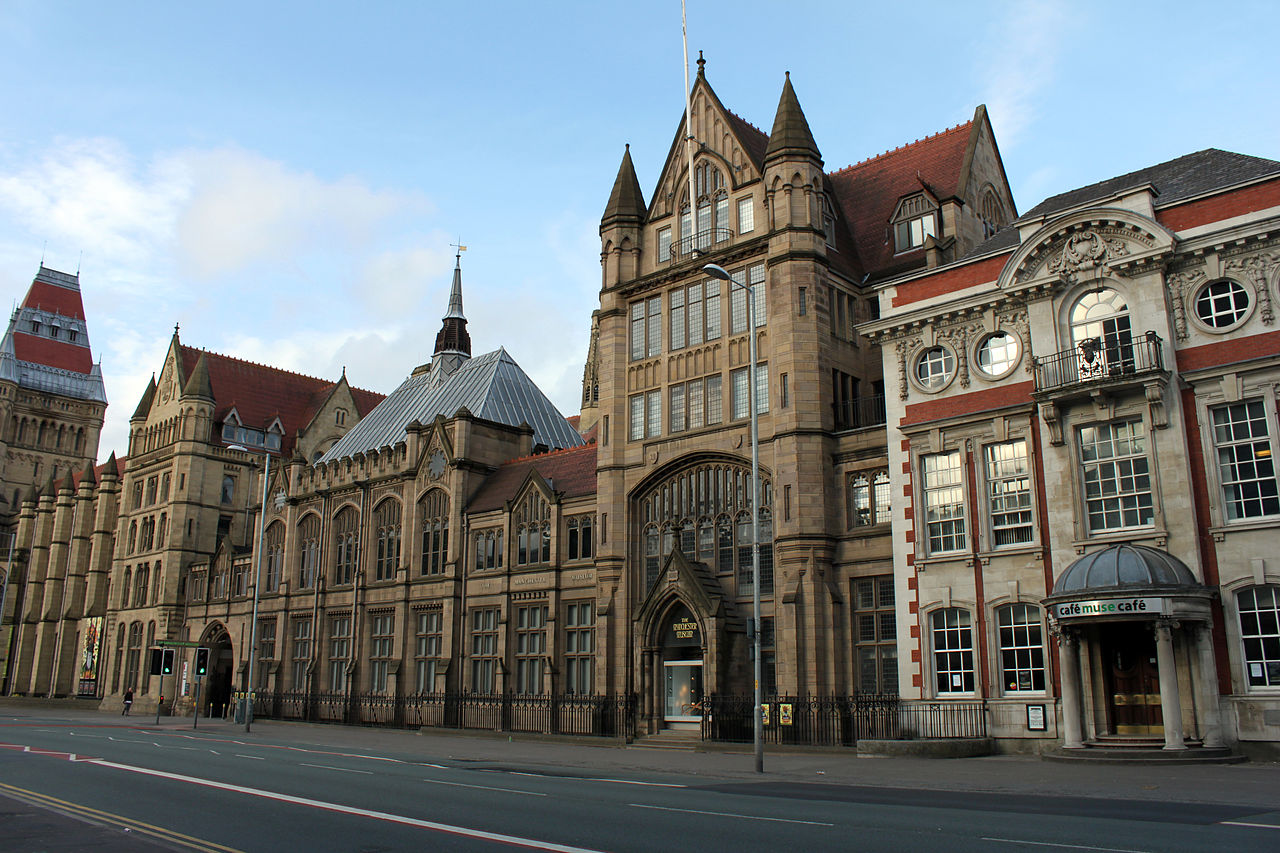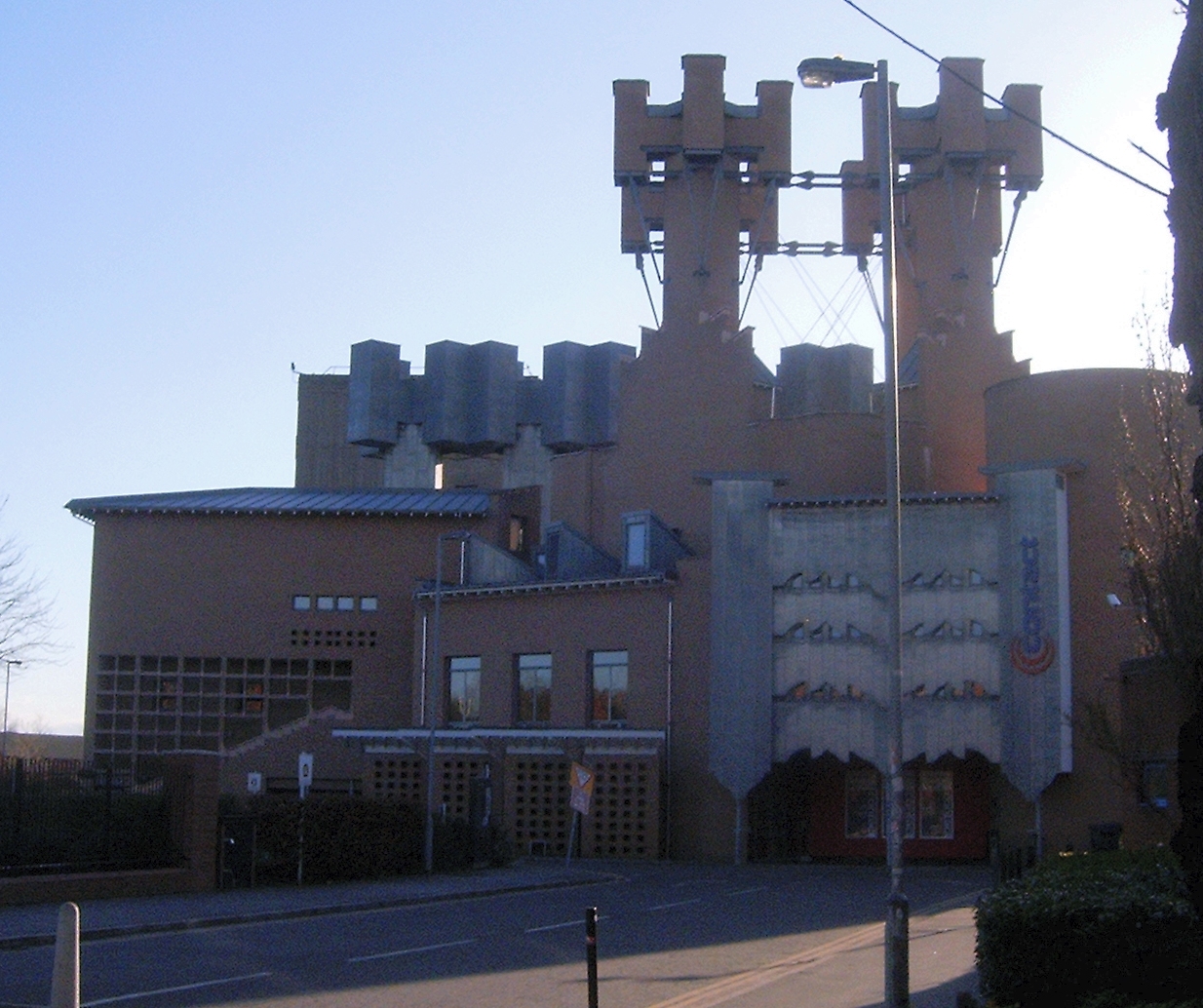However, not only they attract students from all over the world. So, in the University of Manchester the competition is even higher than in the aforementioned giants.
It is only behind these ancient universities in terms of the number of Nobel laureates (there are 23 of them so far). In terms of research potential, the university also ranks third in the UK. The university is located in where the Manchester United club, beloved by millions of football fans, is based. The university campus is located very close to the city center.
The history of the university dates back to 1824 when, thanks to the famous chemist John Dalton, the Institute of Mechanics was founded. In 1851, Owens College was founded, named after John Owens, a merchant who bequeathed his savings to build a college for men.
Queen's University was founded in Manchester in 1880., which functioned on the basis of this college. Soon, the university annexed the Manchester Institute of Mechanics, which became the oldest in the structure of the university. The current look of the University of Manchester acquired in 2004 after the merger of the Manchester Institute of Science and Technology and the University of Manchester Victoria.
The structure of the university
The University of Manchester has only 4 faculties or departments, although over 35,000 students study here in 500 different programs. So, training is offered at the faculties: engineering and physical sciences, humanities, life sciences, medicine and human sciences. The University of Manchester has around 10,000 faculty members, making it the largest non-branch university in the UK.
The university includes one of the largest libraries in Britain, where more than 4 million books and various printed publications are stored. The number of computers for students on campus is one of the largest in Europe.
Also, the University of Manchester has several sports centers that enable students to engage in a variety of sports. So, there is an aquatic center, a velodrome, a boat station and a whole sports town.
The official website of the university, where you can always find the latest information and get acquainted with the educational, scientific and extracurricular life of students, is http://www.manchester.ac.uk/.
University admission
At the university, you can take preparatory English courses for foreigners, as well as the Foundation training program in almost all areas.
For admission to the undergraduate program foreign applicants need to take preparatory courses at the university or complete secondary education and study at a college or university in their country for two years. The score for the IELTS test, depending on the specialization, should be from 6.0 to 7.5.
Admission to the magistracy is carried out in the presence of a bachelor's degree or a specialist's diploma with an average grade of at least 4, a master's degree or a candidate of science degree. IELTS scores must also be between 6.0 and 7.5. To enroll in doctoral studies, you must provide either a master's degree with honors or a Ph.D.
Upon admission to any specialty and study program, foreigners must provide an extract of grades from an existing document on education and a translation of all documents certified by a notary. For certain specialties, it is required to pass an interview, provide a portfolio or confirm work experience.
The fee for the year of study at the Faculty of Humanities (data for the 2013-2014 academic year) was 13,000 GBP, for technical specialties - from 16,000 GBP, at the Faculty of Medicine - from 30,000 GBP. Living and living expenses amounted to about 8900 GBP. All freshmen-foreigners are provided with dorm rooms.
At the time of study, the employment service at the university helps students find a job that can really be combined with study (or flexible hours, or part-time employment). After graduation, she also provides assistance to graduates: offers jobs and a career plan.
University Attractions
In addition to the campus itself, dormitories and all kinds of institutions for organizing student leisure, the University of Manchester boasts a whole scattering of attractions and cultural sites.
One of these objects is the Manchester Museum.- one of the largest British university museums. This is a museum of archeology, anthropology and natural history, where more than 4 million exhibits from different parts of the world are stored.
Here you can see collections of butterflies, birds, mammals, live frogs, ancient household items, fossils, coins, minerals, utensils, weapons, etc. The history of the museum began in 1821, when the natural history society of Manchester provided the first collections for exhibition, and in 1867, due to financial difficulties, responsibility for the collection fell on Owens College. The museum remained as part of the university, and was opened to visitors in 1880.

Also part of the University of Manchester is the Whitworth Art Gallery.. The world-famous British watercolors, historical and contemporary engravings, drawings, paintings, textiles, printed works are stored here - more than 30,000 exhibits in total. There are also individual exhibitions throughout the year.
In 1995, a courtyard with a mezzanine was decorated, where a collection of sculptures is presented. Initially, the gallery was founded by Robert Darbyshire in 1889 with the money of Joseph Whitworth, and only 70 years later it moved to the University of Manchester.
Also, the University of Manchester includes the Contact Theatre, the performances in which are mainly aimed at a youth audience. The building was built in 1999 and is a fortress with two high towers that are responsible for ventilation without requiring air conditioning.

Theater "Contact"
Almost all students at the University of Manchester indicate in annual surveys that they are satisfied with the quality of education. Foreigners make up almost half of all students here, which indicates the high popularity of the university around the world.
Student's personal experience about studying at the University:
